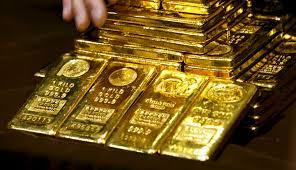In an effort to stop Russian businesses or the Russian central bank from circumventing sanctions, the London Bullion Market Association (LBMA) is compiling a database of Russian gold bars owned by London-based banks.
Banks and the LBMA are hesitant to disclose the amount of Russian gold that is kept in vaults, but declarations by investment funds that possess gold suggest that hundreds of tons were gathered in London, Zurich, and New York before Russia invaded Ukraine in February.
According to statistics from eleven funds, about 7% of the gold they own—currently 160 tons valued at $9 billion—is in Russian.
To help customs officials and market participants verify that Russian gold bars were traveling between countries or that their owners were outside of Russia prior to sanctions being implemented, the LBMA will make its data available to them. However, the public will not have access to this information.
It claimed to have an interim database operational but was trying to enhance access and make maintenance simpler.
After the Kremlin pushed soldiers into Ukraine, the United States and other Western nations imposed sanctions on numerous Russian businesses, banks, and the central bank.
Russia is one of the biggest producers of gold, and London is the center of the world’s bullion trade.
However, bars produced before the Ukraine wars are still able to sell notwithstanding the LBMA’s ban on the sale of new Russian gold bars.
Russian organizations that own pre-war bars worry that they would try to sell them.
According to Ruth Crowell, chief executive of the LBMA, “it made sense for clearing institutions (in London) to transmit to LBMA lists of the bars that were there before sanctions came into effect.”
This, according to Crowell, is done “so that a customs official or anyone can… ask for that to be recognized when attestations are made that these bars were outside of London before the sanctions came into force.”
According to her, the database aims to make it “easier for us to demonstrate compliance with sanctions as metal moves around the world.”
The LBMA receives information from four banks: JPMorgan, HSBC, ICBC Standard, and UBS, which run vaults in London and Zurich.
How much Russian gold was held by them was not disclosed by Crowell.
She claimed that extra scrutiny was discouraging people from dealing with Russian metal and that additional inspection was causing delays, which were also being applied to other gold bars with what appeared to be Russian Cyrillic letters, such as those produced in Kazakhstan and Uzbekistan.

















